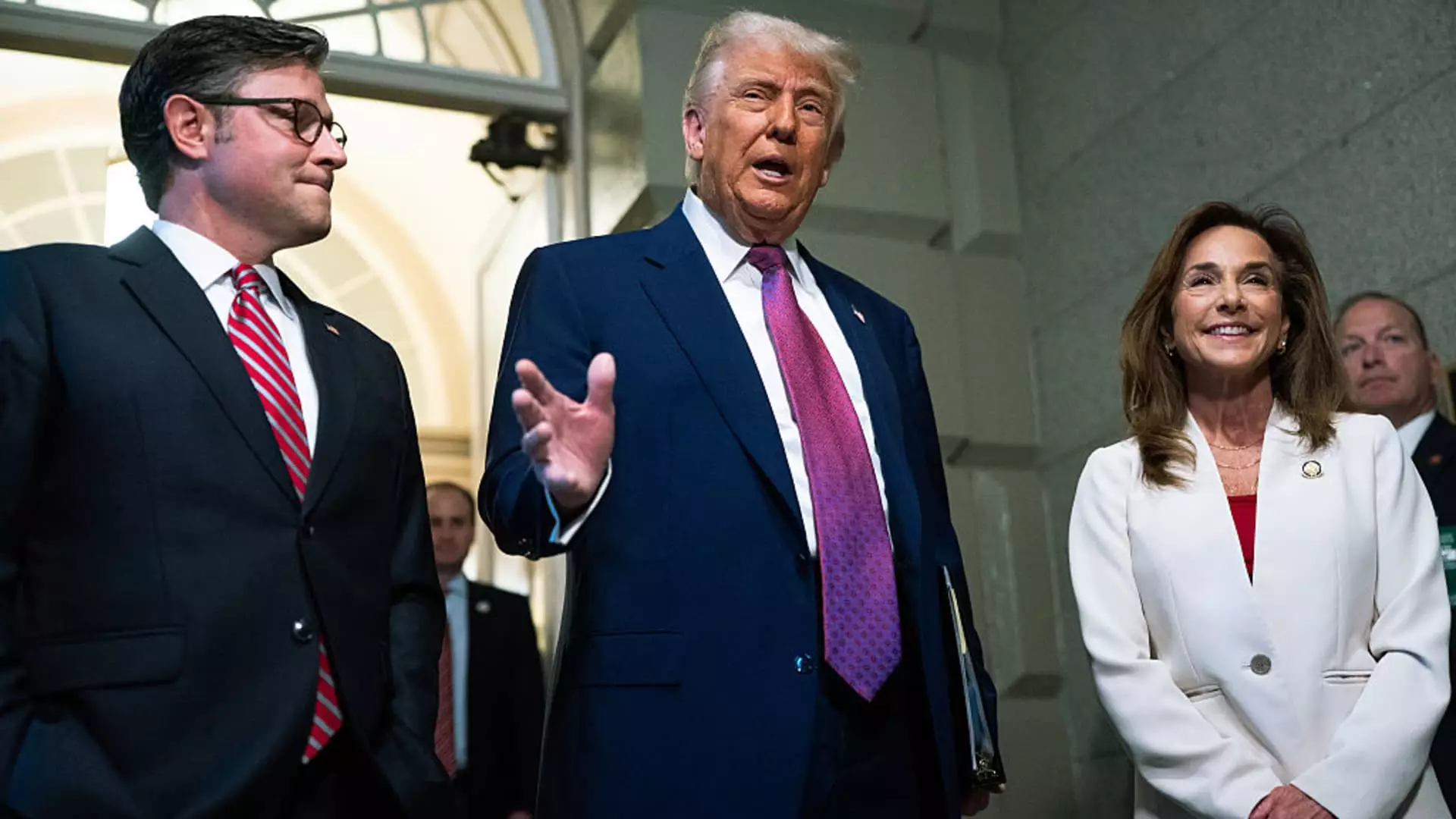In a contentious display emblematic of contemporary American politics, the House of Representatives has resurrected President Donald Trump’s ambitious “big, beautiful” tax overhaul. With a razor-thin vote tally of 215-214, it emerged triumphant through a nearly unanimous Democratic rejection and a few dissident Republican voices. This moment signals not merely a victory for the GOP but a profound shift in economic policy that raises vital questions about equity and fiscal responsibility.
The dynamics of the House reveal a profound schism within the Republican Party, as they attempt to negotiate between staunch conservatives and more centrist members terrified by the implications of radical policy shifts. The passage of this bill, cloaked in over 1,000 pages of legislative jargon and tactical amendments, serves as a classic case of political maneuvering. Here, the Republican leadership capitalized on obscure procedural tactics and contorted positions to corral just enough support to push the bill through—arguably through sheer exhaustion rather than earnest agreement. The lengths to which Speaker Mike Johnson and his supporters have gone to meet self-imposed deadlines are both commendable in dedication and troubling in purpose, suggesting a rush to fulfill partisan accolades over substantive debate.
The Price of Tax Cuts
However, beyond the political theatrics, the central issue of the tax bill merits careful scrutiny. While proponents laud tax cuts as panaceas for economic stimulation—a fallacy reinforced by the invocation of Trump’s earlier tax promises—one cannot overlook the detrimental implications for those at the bottom of the income spectrum. An analysis from the nonpartisan Congressional Budget Office suggests that the very individuals whom tax cuts are frequently claimed to help would find themselves worse off. The numbers are stark: resources would diminish for the lowest decile while inflating the coffers of the wealthiest. It is a cruel irony that in the name of “growth,” the most vulnerable are discarded from the equation entirely.
Critics argue that this approach does nothing to address the underlying inequities that plague the American economic landscape. The enhanced SALT deduction ceiling—a concession to certain Republicans—symbolizes the broader issues of wealth redistribution that favors affluent taxpayers. For households reporting under $500,000, the cap can jump four-fold, seemingly a direct transfer of resources from the wallets of the working class to those already comfortably situated atop the economic ladder. Emblazoned with the banners of promises and prosperity, this bill unveils a far less flattering narrative of exacerbated inequality masked by populist rhetoric.
The Dangers of Fiscal Irresponsibility
What magnifies the concern over this legislation is not only its potential to worsen inequality but also the threat it poses to the nation’s fiscal stability. Markets reacted in alarm to the prospect of ballooning federal deficits, introducing a wave of skepticism about the long-term economic health of the country. With the yield on 30-year Treasury bonds reaching heights near 5.09%, financial analysts grapple with the uncertainty that this tax legislation instills. It becomes essential to question: how can we trust a vision that sacrifices fiscal responsibility for transient political gain?
Notably, the bill creates an illusion of prosperity while tethering future generations to burdensome debt. The benefits espoused by its supporters may be fleeting at best, with immediate gratification giving way to the sobering realities of a compromised fiscal future. The Republican leadership touts this as an essential stepping stone towards revitalization and economic freedom, yet they appear oblivious to the inherent contradictions in an approach that aggressively dismantles the social safety net while simultaneously promising sustained growth.
Concluding Thoughts on Policy Ethics
Ultimately, this legislative whirlwind shines a spotlight on a wider ideological rift that extends beyond mere party lines. It compels us to rethink the ethical dimensions of economic policies that elevate a few at the expense of many. In pursuing this legislative agenda, the current leadership seems willing to sacrifice the foundational ideals of equitable progress for hollow victories, an affront to the core tenets of social justice that the Democratic Party seeks to uphold.
In an era where policy decisions are fervently critiqued for their real-world implications, the call for responsible governance remains imperative. As citizens, our charge insists that we demand more than calculated political wins; we must insist on policies that foster inclusive prosperity, challenging the status quo that leaves too many marginalized. The passage of this tax bill is a vital reminder that legislative accomplishments should not merely be about numbers on a page, but about the lives they ultimately touch—or disregard.


Leave a Reply